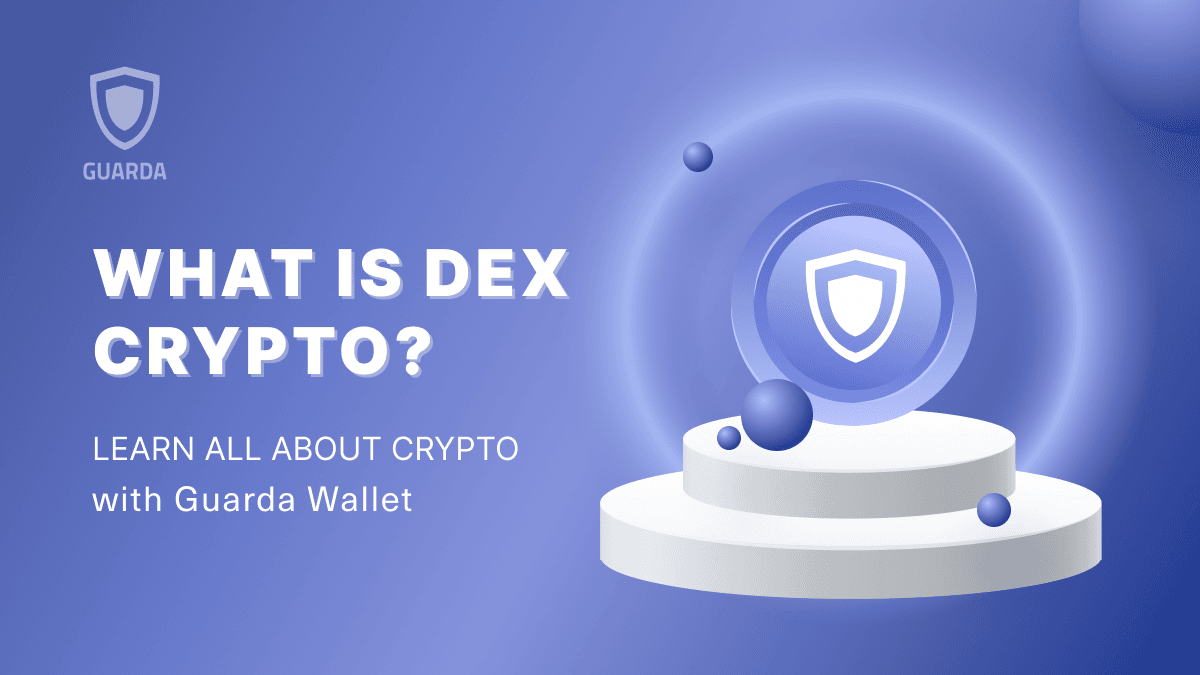What is a CEX in Crypto?
A centralized exchange (CEX) is a crypto trading platform managed by a central authority or company. These exchanges act as intermediaries, facilitating transactions between buyers and sellers while maintaining control over user funds and order matching. Examples of popular CEXs include Binance, Coinbase, and Kraken. They provide high liquidity, user-friendly interfaces, and advanced trading tools that cater to both beginners and experienced traders.
Stay turned with the latest news and updates by joining us on Twitter.
— @GuardaWallet
What is a DEX in Crypto?
A decentralized exchange (DEX) operates without a central authority. Instead, it relies on smart contracts and blockchain technology to enable peer-to-peer trading. Popular DEX platforms include Uniswap, SushiSwap, and now, Guarda Wallet’s built-in DEX functionality. These exchanges provide greater security and anonymity since users retain control over their private keys and funds throughout the trading process.
CEX and DEX Comparison: Key Differences
When evaluating a CEX versus DEX for trading, several factors come into play. Here are the core distinctions:
Custody of Funds: On a CEX, the exchange holds users’ funds in centralized wallets, making them more vulnerable to hacks. A DEX, however, allows users to trade directly from their wallets, ensuring full control over their assets.
Liquidity on CEX vs DEX: Centralized exchanges typically offer higher liquidity due to their vast user base and market-making mechanisms. In contrast, liquidity on a DEX depends on liquidity pools contributed by users, which can sometimes result in higher slippage and lower trading volumes.
Security: DEX security vs CEX is another major point of comparison. While CEXs implement robust security measures, they remain prime targets for cyberattacks. DEXs, on the other hand, minimize counterparty risks by eliminating intermediaries, reducing the likelihood of large-scale breaches.
Regulation and Compliance: Centralized exchanges are subject to regulations, requiring users to complete KYC (Know Your Customer) verification. DEXs, being decentralized, often do not impose such requirements, making them attractive to those who prioritize privacy.
User Experience: The advantages of CEX over DEX include easier navigation, customer support, and additional trading tools like margin trading and futures. DEXs are improving in usability, but they can still be complex for newcomers.
Benefits of CEX vs DEX: Which is Better?
The decision to use a CEX or a DEX depends on a trader’s priorities. Here’s a closer look at the benefits of both:
Advantages of CEX Over DEX
- Higher liquidity and faster order execution
- More trading features and advanced tools
- Regulated environment ensuring compliance and legal protections
- Better customer support and assistance
Decentralized Exchange Advantages
- Greater security due to non-custodial trading
- Enhanced privacy with no mandatory KYC
- Reduced risk of exchange hacks or failures
- Permissionless access to global markets
Why Use a DEX?
DEX platforms appeal to traders who prioritize security, autonomy, and censorship resistance. With the rise of decentralized finance (DeFi), more users are shifting towards DEXs to take advantage of yield farming, staking, and governance participation. Guarda Wallet’s newly integrated DEX functionality makes it easier than ever to trade securely while maintaining full control over assets.
CEX vs DEX Pros and Cons: A Final Overview
| Feature | CEX | DEX |
|---|---|---|
| Liquidity | High | Variable |
| Security | Vulnerable to hacks | Safer due to non-custodial trading |
| User Experience | Beginner-friendly | More complex for newcomers |
| Trading Features | Advanced tools available | Limited options |
| Regulation | KYC required | No KYC needed |
| Control Over Funds | Exchange holds custody | Users control their funds |
How Do CEX and DEX Differ in Terms of Future Growth?
The future of crypto exchanges will likely involve a hybrid approach, combining the best aspects of both CEX and DEX platforms. Innovations such as Guarda Wallet’s DEX functionality demonstrate the increasing demand for decentralized solutions while maintaining usability and efficiency.
Conclusion
The CEX and DEX comparison ultimately comes down to individual trading preferences. While CEXs offer convenience, high liquidity, and regulatory compliance, DEXs provide enhanced security, privacy, and control over assets. Whether you prioritize seamless trading or decentralized autonomy, Guarda Wallet now offers integrated DEX functionality, making it a lucrative choice for crypto enthusiasts seeking secure and flexible trading options.







